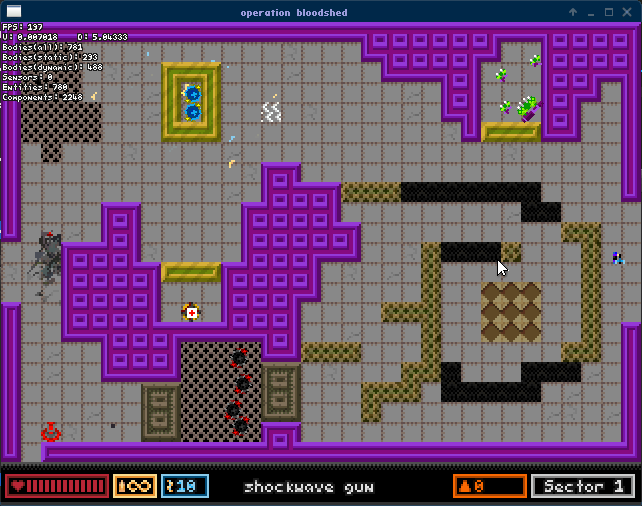31
General discussions / My CppCon2014 talk about SFML gamedev: "Quick game development with C++11/C++14"
« on: October 08, 2014, 02:15:51 pm »
Hello SFML community,
my name is Vittorio Romeo and I'm a Computer Science student.
This year I've attended CppCon2014 and gave a talk about game development (almost) from scratch using the newest C++ standards (C++11 and C++14) and SFML.
The goals of the talk are showing how easy it is to use modern C++ to create a game and encouraging everyone to try game development.
I hope you'll find it interesting!
I'm always open to feedback
my name is Vittorio Romeo and I'm a Computer Science student.
This year I've attended CppCon2014 and gave a talk about game development (almost) from scratch using the newest C++ standards (C++11 and C++14) and SFML.
The goals of the talk are showing how easy it is to use modern C++ to create a game and encouraging everyone to try game development.
I hope you'll find it interesting!
I'm always open to feedback





